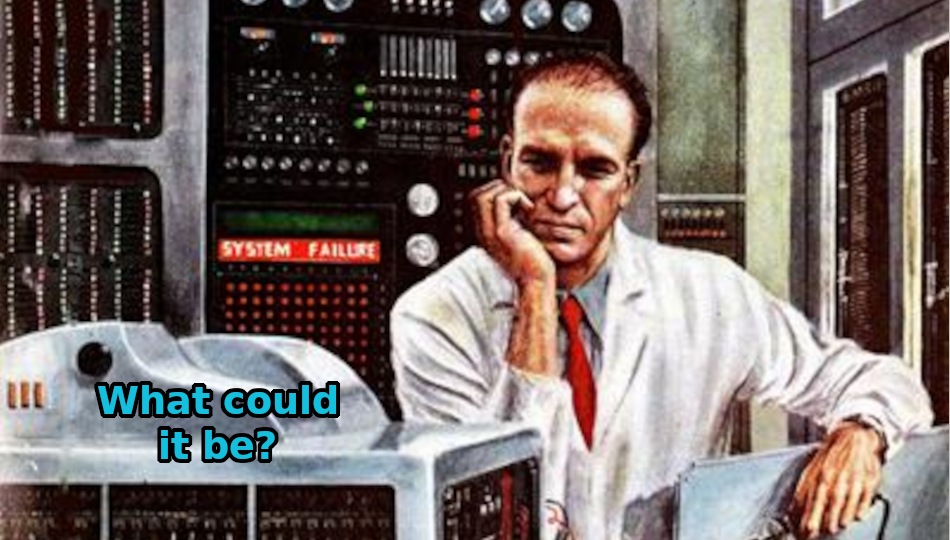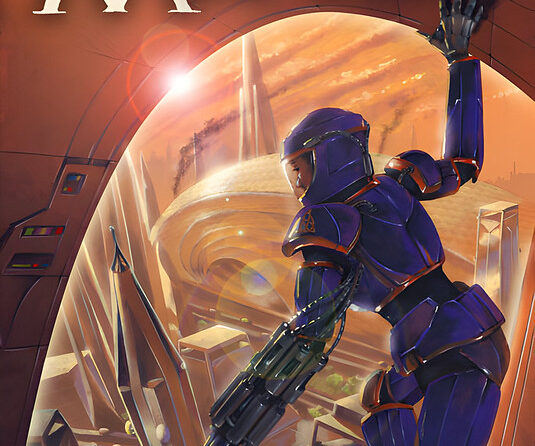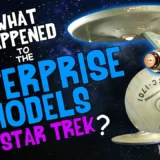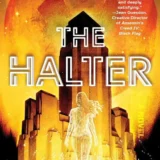
OBIR: Occasional Biased and Ignorant Reviews reflecting this reader’s opinion.

5 Hard and Crunchy SF Tales – by Michèle Laframboise
Publisher: Echofictions, Mississauga, Ontario, Canada, 2022.
Cover Design: Echofictions / Deposit Photos / Innovari
Note: All stories in this collection are by Michèle Laframboise.
Thinking Inside the Box
Premise:
Human ambassadors are guests aboard an alien spaceship. The experience is weirder than they anticipated.
Review:
Technically the spacecraft is a “Loonguini Travelling Box.” Multiple boxes within boxes, actually, the interior of each similar to an M.C. Escher drawing with myriad ramps, stairs, and planes of being. There is no fixed up or down. Even the gravity shifts depending on where you are or how your temporary presence is treated by your ever-changing surroundings. It is like living inside a Rubic cube full of Rubic cubes. The humans call the box “the Rubic.” They hate it. Nothing is stable or permanent. Nothing.
The story is told from the point of view of the Loonguinis assigned to look after the ambassadors. From a distance, down a dark alley, on a moonless night, you might mistake it for a human female. In fact it is absolutely non-human. Often in SF, especially in the days of pulp fiction, alien characters are essentially humans who happen to resemble squids, or cockroaches, or some other Earth species. Really just alien-impersonators.
This story is refreshingly different. It’s not the body that matters, it’s the alien psychology, their pattern of thinking. How this comes across is greatly aided by the inadequate translation skills of the main alien character. It understands the literal meaning of many English words, but not how they are used or the myriad associations each word implies. And sometimes even the meaning has no meaning, in that the underlying concept is beyond the alien’s comprehension.
Given that even the simple act of explaining how to move through a gravity-shifting doorway puzzles and distresses the humans, what are the likely chances of diplomatic exchanges at the highest level accomplishing anything useful? Their mission seems foredoomed to failure.
Ultimately it boils down to a fundamental difference in perceived normality. Humans crave stability and abhor change. The aliens are comfortable with everything in the universe being in a constant state of flux and detest stability, regarding permanence as a perverse and depraved concept, insane and irrational, beyond the pale in a civilized society. From their point of view humans are deranged monstrosities. This does not bode well for the impending negotiations. Especially if it begins with both sides yelling “You weirdos are f*****g crazy!”
What’s required is a meeting of minds. How and if this can be achieved provides the tension in the story. It’s a wonderful bit of hard science fiction dependent, not on overt superficial alien appearances, but on genuinely “different” modes of thought and behaviour. Nothing lazy about this story. It’s innovative and original. I like truly-alien aliens. Consequently this story has great appeal for me. It’s a lot of fun.
Ice Monarch
Premise:
The world is dying. That doesn’t stop an immortal oligarch from employing a human/Monarch butterfly-cyborg to spy on survivors in order to destroy them.
Review:
This particular reconnaissance butterfly serves one of the 31 immortal Ice Lords dwelling in what are essentially “fortresses of solitude” scattered about the artificial ice near the North pole. “Artificial ice” constructed of insanely sturdy Styrofoam, an abandoned attempt to increase the amount of sunlight reflected back into space and thus prevent global warming. Didn’t work. The Ice Lords don’t care. They used to be human too, and were and are narcissistic megalomaniacs taking advantage of advanced technology to manipulate the human race for fun and profit, mostly for fun. It’s their hobby.
Each “palace” contains an Ice Lord, his equally-augmented family members, and thousands of cyborg servants, very few of them resembling the ordinary people they once were. The butterfly, a mere 148 years old, agreed to be transformed into a fluttering, human-sized drone with huge orange and black wings because it wanted to live longer than the normal human lifespan, wanted to be immune to the human extinction event, and, formerly an ecologist, wanted to experience the beauty of the dying Earth from above as it ranged over the entire planet.
Do you have flying dreams? I do. Do you enjoy looking down on the scenery below you? I do. Consequently I empathise with the butterfly. For one thing, it can soar like a condor. The world passes beneath its sensors. It enjoys everything it sees. One of the few beings left alive enjoying life. It is perhaps to be envied, possibly even more than the Ice Lords. They may be immortal, but the butterfly’s sense of wonder is continually stirred.
Except, except… when it discovers some isolated agrarian community bravely surviving in the wasteland wilderness. Then it has to report back to its master, and the Ice Lord will send machines and a small band of murderous humans subverted to its cause to “punish” the survivors for daring to exist when any and all resources should be reserved for the Ice Lords alone. This always makes the butterfly sad. Till one day when it resolves to stop being sad.
Evil oligarchs using advanced tech to compete with each other in the destruction of humanity goes right back to the 1933 “The Man Who Awoke” series by Lawrence Manning, if not earlier. But many SF concepts, like spaceships or time travel, go way back. What counts is an original treatment, a new variant, a fresh approach. This story excels in that. And it accomplishes a remarkable thing.
On the one hand, it displays deep cynicism in its exploration of how some powers that be regard the impending end of the world (global warming, climate change, human extinction, etc.) is merely a trend in “the great game” and will exploit whatever happens for profit and amusement, regardless of how it effects the human race. And on the other hand, it offers a vision of human augmentation that can be joyous and beautiful, which seems like a fantasy intrusion, and yet is perfectly logical given sufficiently advanced technology.
I read this story experiencing mixed emotions. It is both pessimistic and optimistic all at once. It is also an entertaining extrapolation of current trends. Ultimately I came away from it with the belief that humanity will always remain human, no matter what, and part of being human is to appreciate beauty. In that sense maybe the story is pure fantasy after all, but I prefer not to think so.
Closing the Big Bang
Premise:
What do you do when you explode a G2 sun and destroy an inhabited world to entertain your guests, and something goes wrong?
Review:
The owner of the Big Bang Bar, a starship in its own right, employs astronomical power and charges astronomical fees to titillate the jaded super-rich clients it serves and rips-off.
For some reason I am reminded of the ultra-private and exclusive clubs in London, England, that serve the super-rich and the super-powerful. An extremely wealthy relative of a friend took me to dinner in one back in 1970. I remember being jolted by the realization that the several dozen statues scattered about were genuine marble antiques and not plaster casts. I was further boggled when an elderly gentleman at a nearby table was singled out as “Lord such-and-so. He always eats here. It reminds him of home.” But I digress.
Point is, extremely wealthy and powerful individuals do not at all resemble the average person’s visualization of them. I suspect most people view them as ordinary people who happen to be extremely lucky, never mind by birth or business acumen, they think like us, the are identical to us, they’re just lucky sods who won a lottery, so to speak. Really, they’re just people with money. Nothing more.
This, of course, is a delusion. The extremely wealthy, often extreme influencers in the behind-the-scenes corridors of power, take for granted the rightness and legitimacy of their elitist position. Even if they are atheists, they live moment to moment as if they exist according to divine right. They’re on top, and that’s where they belong. The masses? The great unwashed? Bit of a nuisance. If only they’d behave. Fortunately it’s easy to manipulate them.
It so happens I’ve been reading a book about British politics in the 1930s. Parliament was divided between Conservatives and Labour, but virtually every man-Jack of them was an aristocrat of one kind or another. They had far more in common with each other than they did with their constituents. This sort of thing applies to all power elites. America prides itself on not possessing aristocrats. In fact it does, generations of wealthy and powerful influencers competing with each other and pretending to be populists when in fact they serve only themselves. Today, more than ever, wealthy, powerful people are objects of hero worship. This is insane. They are the most dangerous people alive. May the gods preserve us from “Great Men.”
Point is this story captures very well the fundamental nature of power elites. It also reveals something they do have in common with ordinary folk. Like us, they can be betrayed. Not a useful lesson exactly, but amusing and somewhat reassuring. After all, Julius Caesar openly boasted of slaughtering more than a million people, went from strength to strength, pretty much figured he could accomplish anything, and look what happened to him. Mind you, I’m not advocating assassination. I’m just saying the fog of life is even worse than the fog of war. Nobody, not even the elite, can afford to be complacent and smug. If you are, watch out. Everybody needs to expect the unexpected.
What makes this story a good example of hard science fiction is that the human drama depends on the technology of this far-distant futurist period-piece. As a result every aspect of this story hangs together and flows smoothly. Well done.
Women are from Mars, Men are from Venus
Premise:
At first the Terraforming of Mars went well, until the economy collapsed and she lost contact with the other inhabited worlds of the Solar System.
Review:
Religia “Dominik” is a young woman born to servitude on Mars. After the collapse and a war or two interplanetary travel picked up. Unfortunately the Martian economy didn’t. For several generations young men fled the planet in search of careers elsewhere. The vast majority of inhabitants are women, like Religia dreaming of earning enough to buy their freedom and go off-planet, but fat chance of that. Her job is among the lowest of the low, travelling across the planet with a prospecting team hoping against hope they will discover resources centuries of explorers previously missed.
Genes being what they are, Religia is naturally obese, although in the low gravity of Mars it hardly matters. It does mean she is celibate whether she wants to be or not. The few men on Mars take for granted they can have any woman they desire, men being in such short supply. Their male culture has dropped all pretence of seduction. This renders daily life rather joyless for the majority of women. Mars feels like a prison planet.
Religia dreams of living in a world where men value women and don’t take them for granted as expendable objects of pleasure. Rumour has it there is such a world. The cloud cities of Venus where the majority of technicians keeping the cities afloat and running are men. Reglia assumes the art of gentlemanly seduction flourishes there. Venus fills her thoughts.
Unfortunately, yet another dust storm rears up and causes dangerous complications. Religia has to focus on survival rather than her day dreams. But her motivation is not mere survival, for life on Mars is a muted living hell for her. She seeks paradise. She wants to live on Venus.
What I like about this story is the futuristic extrapolation of sexual practices and sexual politics dependent on gender logistics. Today, more or less everywhere, the number of men and women in each country is roughly at parity, and look how complicated and nerve-wracking relations between the sexes are as it is. Seems like many people are thinking “Yes, I know there’s millions of fish in the sea but why can’t I find even one in my net?” Well, imagine a country (or a planet) where one sex is outnumbered by the other 5 to 1. If you think the human race is screwed up as is, consider the implications of such an imbalance.
Laframboise did, and the result is quite interesting. Subtle, but convincing. From this story I derive the feeling that human ingenuity knows no bounds, especially when applied to our most basic instincts. You haven’t heard the last word on sexual relations yet. Humanity will continue to improvise. This story points out you can take that for granted.
Cousin Entropy
Premise:
How do you survive the end of the universe?
Review:
Absolutely this story reminds me of the classic works of Olaf Stapledon, namely “Last and First Men” (1930) and “Starmaker” (1937), which detail the evolution of the human race over a period of 100 billion years. Breathtaking, to say the least.
Thing is, as I recall, the writing was rather dry, being a grand revelation of imposing vistas that was rather impersonal and schematic in nature. Not really offering any characters the reader can relate to.
In this story, the author lays out a logical progression of evolution, but brings character into the picture. Even though the bulk of the tale has to do with the competition between entropy and its opposite, enthalpy, and the growing estrangement between the “Attached,” those who live planet-side or aboard artificial constructs, and the “Unattached,” fantastically augmented beings who live in space itself, it’s really about an individual who observes the passing scene with wry humour and a growing ennui, yet remains determined to use its god-like powers to endure even the heat-death of the universe. An optimist if there ever was one.
Yep, that’s what I like about this story. Everything is personal, gives it a lively air. Plus, though logical, not everything is straight forward. There are surprising revelations about the “true” nature of the universe. This makes it a sprightly tale.
Overall, though covering billions of years, the narrative is on a human scale enlivened by deft touches of unexpected characterization. The result is most entertaining. Though Stapledon’s works are majestic and inspiring, this story is all that too and far more readable, more accessible.
To put it another way, this story is not only as good as Stapledon’s work, it is, in my opinion, superior. It’s a grand means of contemplating the infinite. And fun, too.
CONCLUSION:
All the stories in this collection are exhilarating futurist extrapolations. What particularly impresses me is that the author writes with utter confidence. This lends credibility to every concept offered. For fans of hard science fiction this book Is a wish fulfilled, a dream come true. Hard and crunchy, indeed! I enjoyed chewing every page of it. Highly recommended.
Available here: < 5 Hard and Crunchy SF Tales >









